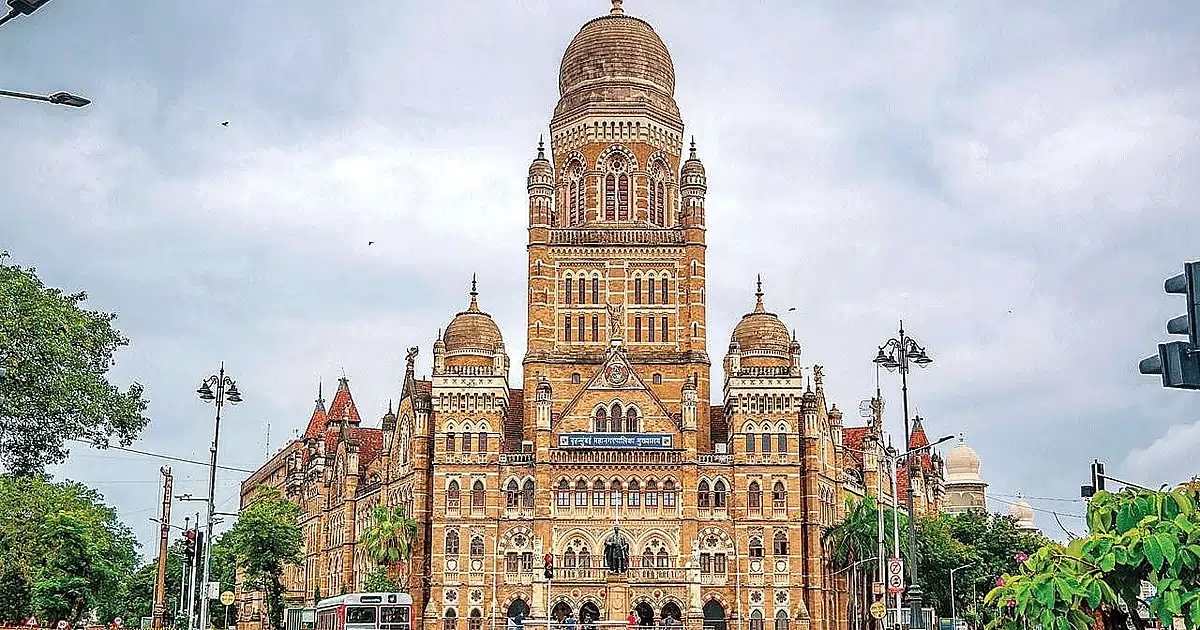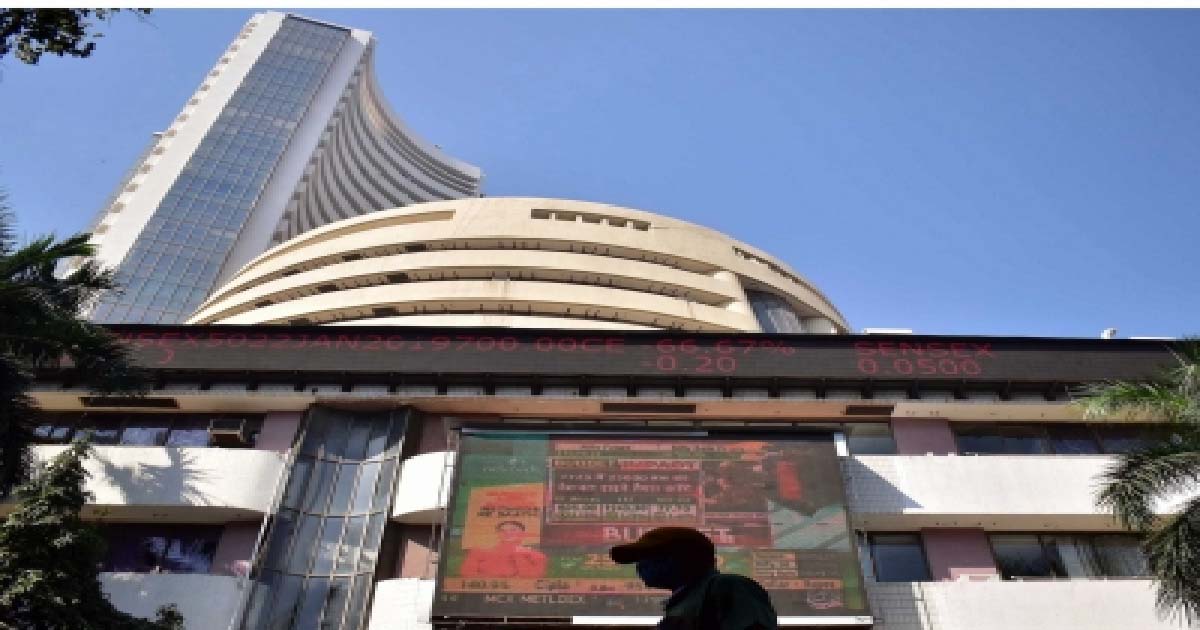Business
BMC Budget 2025: Mumbai Civic Body Allocates ₹7,380 Crore For Healthcare In 2025-26 Budget; Full Details Inside

Mumbai: The Brihanmumbai Municipal Corporation (BMC) has allocated Rs 7,380.43 crore for healthcare in its 2025-26 budget of Rs 74,427 crore, focusing on hospital redevelopment, disease prevention and expanded medical services.
To increase capacity, 3,515 new beds will be added through municipal hospital redevelopment. Intensive care and neonatal ICU services in suburban hospitals will also be expanded. The Hinduhridaysamrat Balasaheb Thackeray – Aapla Dawakhana initiative, which has 250 centres and 33 polyclinics, has benefited 90 lakh patients so far.
New Aapla Dawakhana Centres To Come Up In City
In the coming year, 25 new Aapla Dawakhana centres and three physiotherapy centres will be set up. Free diagnostic tests, including X-rays, ECGs, CT scans, MRI and mammography, will be provided at municipal rates through private labs.
Under a public-private partnership model, private institutions will operate and maintain hospitals for 30 years. These include the 490-bed Bhagwati Hospital in R/North Ward, a 300-bed hospital transferred from MMRDA in M/East Ward, as well as the Punjabi Galli Diagnostic Center, Jakhadevi Multi-Specialty Clinic and Vikhroli Parksite Hospital.
Several specialty medical services and hospital upgrades are planned. Nair Hospital will get a new oncology and emergency department, while Cooper Hospital will have a 150-bed cancer unit equipped with Linear Accelerator radiation therapy. IVF and dialysis services will be expanded at KEM, Nair, and LTMG Hospitals. The redevelopment of LTMG Hospital will include a new nursing college and an oncology building.
A ‘Zero Prescription Policy’ will ensure that all required medicines are available in municipal hospitals. The ‘Aarogya Seva Aaplya Dari’ initiative will introduce door-to-door health check-ups. DNB medical courses will be expanded, with new specialisations in ENT and Anesthesia.
Cancer Screening Initiative
In terms of disease prevention and cancer screening, 30 lakh citizens will be screened for hypertension, while an HPV vaccination program will be launched for girls aged 9 to 14 to prevent cervical cancer. A ward-wise cancer care model will be implemented to screen for oral, breast and cervical cancer.
Efforts to eliminate tuberculosis include distributing kits with masks, sanitizers, and spittoons to all TB patients. A Next-Generation Sequencing pilot project at Kasturba Hospital will improve TB diagnosis. A new BPaL regimen for MDR-TB treatment will be introduced.
Initiatives Benefitting Pregnant Women & Children
Maternal and child healthcare initiatives include 38 ‘Maa Mitra’ helpdesks to track high-risk pregnancies, automated voice calls and SMS alerts for pregnant women and infant immunization, cochlear implant surgeries for children with hearing disabilities at AJB ENT Hospital, and the establishment of two new Nutrition Rehabilitation Centres for malnourished children.
The immunization and disease surveillance program will conduct 52,000 vaccination sessions annually across Mumbai. A Typhoid Sentinel Surveillance program will be introduced in nine health centres.
Business
Centre to launch third round of PLI scheme for specialty steel

New Delhi, Nov 4: The government was set to launch the third round of the production-linked incentive (PLI) scheme for Specialty Steel on Tuesday, which is one of the key initiatives under the Atmanirbhar Bharat vision.
The PLI 1.2 launch will be presided over by Union Minister H.D. Kumaraswamy, in the presence of senior officials, and other stakeholders from the sector, according to Ministry of Steel.
The ministry said that the PLI Scheme for Specialty Steel, approved by the Union Cabinet in July 2021 with an overall outlay of Rs 6,322 crore, aims to transform India into a global hub for production of high-value and advanced steel grades.
The PLI scheme has attracted a committed investment of Rs 43,874 crore so far, with Rs 22,973 crore already invested and over 13,000 jobs created under the first two rounds.
The scheme covers 22 product sub-categories including super alloys, CRGO, alloy forgings, stainless steel (long and flat), titanium alloys, and coated steels.
Incentive rates range from 4 per cent to 15 per cent, applicable for five years starting FY 2025–26, with disbursal beginning in FY 2026–27.
The base year for pricing has also been updated to FY 2024–25 to better reflect current trends.
The PLI scheme incentivises incremental production and investment in identified product categories, thereby enhancing value addition within the country and reducing import dependence in critical sectors such as defence, power, aerospace and infrastructure.
Meanwhile, the country aims to achieve 300 million tonnes of crude steel production capacity by 2030. Notably, India’s domestic steel demand is growing at an impressive 11-13 per cent, fuelled by large-scale infrastructure projects, while global demand faces a slowdown, according to Steel Ministry.
Steel production surged by a robust 14.1 per cent in September compared to the same month of the previous year on the back of increased demand from big-ticket infrastructure projects being carried out by the government.
Business
Indian stock markets end higher after two days of losses

Mumbai, Nov 3: Indian equity markets ended a volatile session on a positive note on Monday, snapping a two-day losing streak.
Gains in real estate and state-owned bank stocks helped lift the indices despite early weakness.
After opening lower, the Sensex recovered to touch an intra-day high of 84,127 before closing 39.78 points, or 0.05 per cent, higher at 83,978.49.
The Nifty also gained 41.25 points, or 0.16 per cent, to end at 25,763.35.
“The Nifty oscillated between 25,700 and 25,800 through the day, showing resilience after briefly dipping below the October 24 low of 25,718,” analysts said.
“The zone between 25,660–25,700 once again acted as a strong demand pocket, helping the index recover intraday losses and maintain a constructive tone ahead of key global data releases,” they added.
Among the Sensex stocks, Maruti Suzuki fell over 3 per cent and was among the top losers along with Titan Company, BEL, TCS, ITC, NTPC, Bajaj Finserv, Tata Steel and tech Mahindra.
On the other hand, Mahindra & Mahindra, State Bank of India, Tata Motors Passenger Vehicles, and HCL Tech were the major gainers.
In the broader markets, the Nifty MidCap index rose 0.77 per cent, while the Nifty SmallCap index advanced 0.72 per cent, showing strength beyond the frontline stocks.
Among sectoral indices, PSU bank shares led the rally, with the Nifty PSU Bank index climbing 1.92 per cent.
Bank of Baroda surged 5 per cent, while Canara Bank, Bank of Maharashtra, Bank of India, and Indian Bank also gained.
The Nifty Metal and Realty indices also added up to 2 per cent each.
Meanwhile, the FMCG, Private Bank, and IT indices slipped up to 0.4 per cent, capping the market’s overall gains.
Analysts said that despite mixed global cues and cautious investor sentiment, buying in select sectors helped the markets end the day in the green.
“The domestic market ended on a marginal positive note as profit booking was visible at the higher levels due to the absence of fresh domestic triggers,” market watchers said.
“While the broader market outperformed since the quarterly earnings are steering investors’ preference to take a short- to medium-term view,” they mentioned.
Business
India’s manufacturing growth picks up in Oct due to robust domestic demand: PMI data

New Delhi, Nov 3: India’s manufacturing sector growth surged in the month of October, fuelled by strong domestic demand, GST 2.0 reforms, productivity gains and increased technology investments, a report said on Monday.
The HSBC India Manufacturing Purchasing Managers’ Index (PMI) rose to 59.2 in October from 57.7 in September, according to data compiled by US-based financial intelligence provider S&P Global.
The increase stemmed from quicker growth in new orders and factory output at the beginning of the third financial quarter, driven by boost in advertising and recent GST reforms, the report said.
The expansion rate matched levels seen in August, which was one of the strongest in the last five years, it indicated.
A reading above 50 indicates economic expansion, while one below 50 shows contraction in the manufacturing, services, or construction sectors. A reading of exactly 50 signifies flat activity.
The manufacturing PMI acceleration comes from robust end-demand fuelled expansions in output, new orders, and job creation, said Pranjul Bhandari, chief India economist at HSBC.
Meanwhile, input prices moderated in October while average selling prices increased as some manufacturers passed on additional cost burdens to end-consumers, Bhandari added.
Despite input cost inflation easing to an eight-month low, output charge inflation remained at its highest level in 12 years for the second consecutive month.
Companies reported passing on higher freight and labour costs to customers, while strong demand allowed them to maintain elevated prices.
Domestic sales growth outpaced export orders, which grew more slowly even with some improvement in overseas demand. Employment creation continued for the twentieth straight month in October, with hiring remaining moderate and largely consistent with September’s levels, it noted.
Manufacturers remain optimistic about future business conditions, crediting their optimism to GST reforms, capacity expansion, and stronger marketing efforts, the report noted.
-

 Crime3 years ago
Crime3 years agoClass 10 student jumps to death in Jaipur
-

 Maharashtra1 year ago
Maharashtra1 year agoMumbai Local Train Update: Central Railway’s New Timetable Comes Into Effect; Check Full List Of Revised Timings & Stations
-

 Maharashtra1 year ago
Maharashtra1 year agoMumbai To Go Toll-Free Tonight! Maharashtra Govt Announces Complete Toll Waiver For Light Motor Vehicles At All 5 Entry Points Of City
-

 Maharashtra1 year ago
Maharashtra1 year agoFalse photo of Imtiaz Jaleel’s rally, exposing the fooling conspiracy
-

 National News1 year ago
National News1 year agoMinistry of Railways rolls out Special Drive 4.0 with focus on digitisation, cleanliness, inclusiveness and grievance redressal
-

 Maharashtra12 months ago
Maharashtra12 months agoMaharashtra Elections 2024: Mumbai Metro & BEST Services Extended Till Midnight On Voting Day
-

 National News1 year ago
National News1 year agoJ&K: 4 Jawans Killed, 28 Injured After Bus Carrying BSF Personnel For Poll Duty Falls Into Gorge In Budgam; Terrifying Visuals Surface
-

 Crime1 year ago
Crime1 year agoBaba Siddique Murder: Mumbai Police Unable To Get Lawrence Bishnoi Custody Due To Home Ministry Order, Says Report












